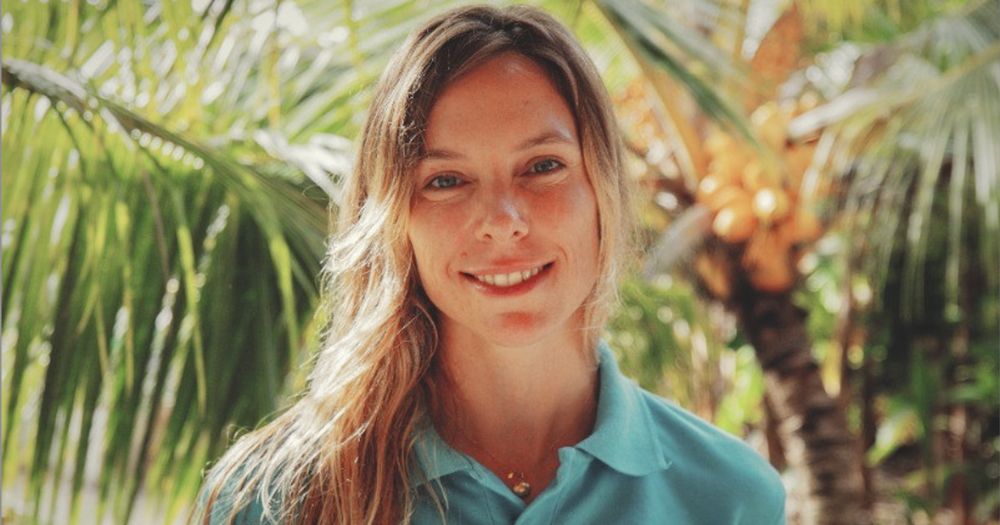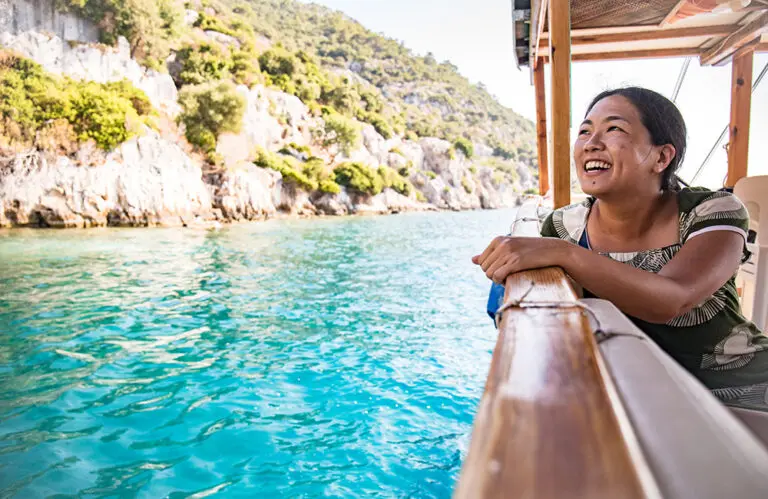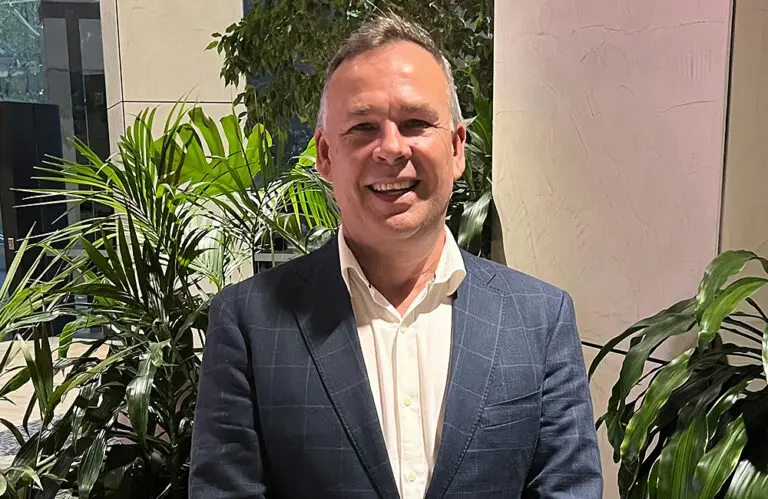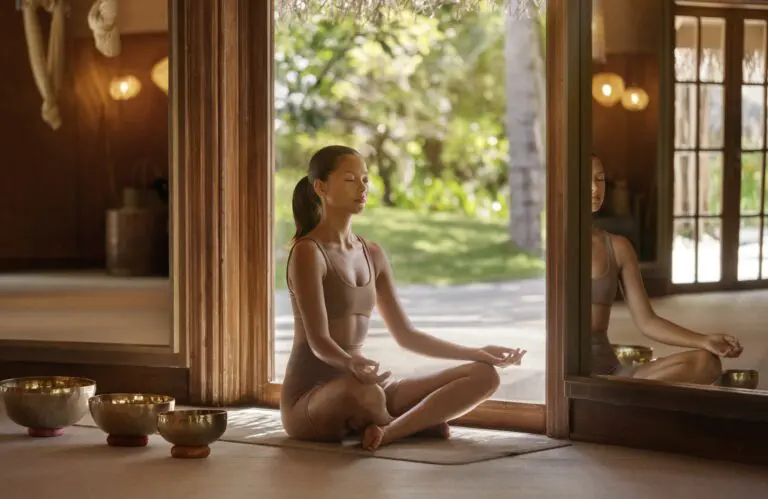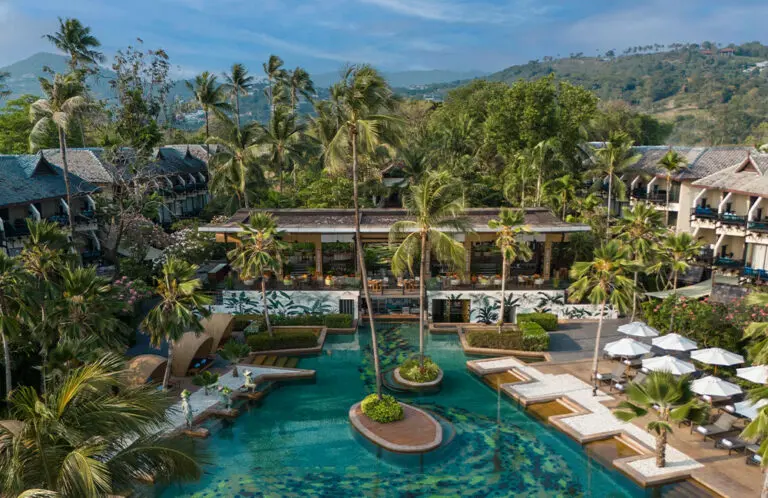Diving twice a day in a UNESCO Biosphere Reserve off one of the largest islands in the Maldives might sound like a holiday to most, but it’s all in a day’s work for Soneva’s lead scientist, Dr Johanna Leonhardt.
Johanna Leonhardt’s most vivid childhood memories are of diving among rock pools, discovering an octopus using a nautilus shell to hide – and the awe of the ocean has never left her.
It’s little surprise then that she’s now the lead scientist in Soneva Group’s coral restoration program’ Aqua Terra’, which operates from five-star resort, Soneva Fushi in the Baa Atoll.
This one-hectare coral nursery in the Maldives is one of the largest coral farms in the Indian Ocean, where the team expects to produce approximately 150,000 coral fragments each year in a bid to replenish the world’s coral population.
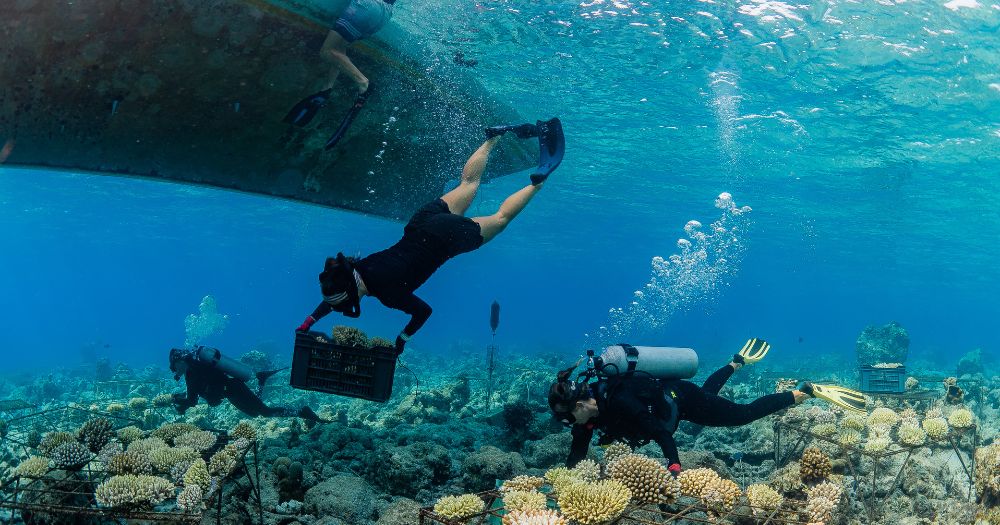
A day in the life at Soneva Fushi in the Maldives
Dr Leonhardt grew up on Australia’s east coast and has spent “her whole life” in the ocean where she says she “feels more at home than on land”.
But diving twice a day isn’t child’s play. Dr Leonhardt manages nine projects focused on coral restoration and says they have wide-reaching effects.
“When coral reefs are healthy and thriving, you have better water quality, protection from erosion and an abundance of fish and marine life living within the habitat – all of these add to local ecosystem health, including helping the communities that live close to coral reefs and use these resources as a food source, income through tourism and protection for their homes.
“Coral reefs also indirectly help seed our oceans, providing food to many of the larger fish that are found in deeper water, the species that we fish for and want to eat, even in distant cities.”
She says an important part of the program is to create new coral, where patience is key.
“We are trying to create resilient corals that can survive and thrive in the changing environment. In total, it’s around nine months minimum for these babies to grow before they are planted out into the wild.”
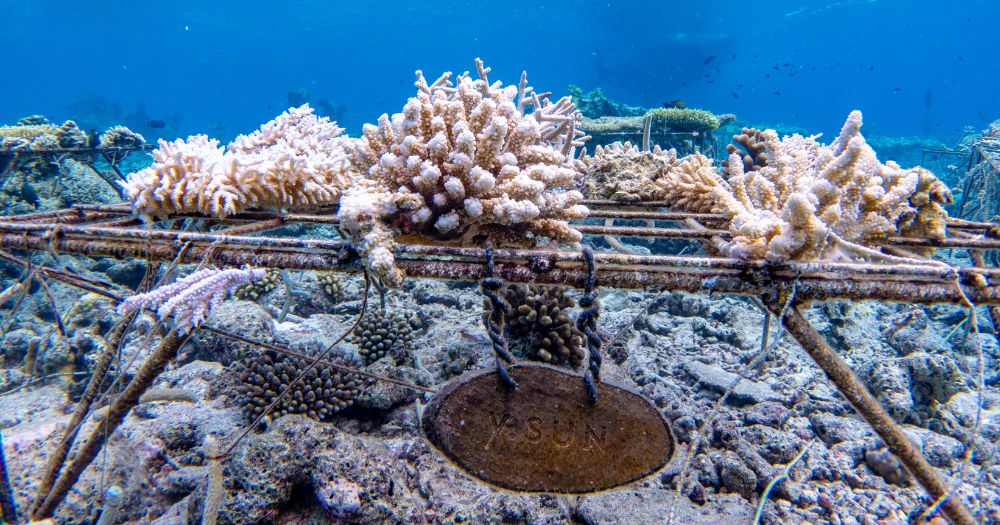
Take a deep dive in the Maldives
This vital project isn’t just reserved for the scientists among us. Guests too can go diving and snorkelling and experience the nursery.
And, Dr Leonhardt says, as with everything, if people experience it, they’re more likely to support the cause.
“Guests learn about what coral is, how it grows, what it needs for food and how it makes a huge difference in marine creatures’ lives. They also learn about the plight of the corals – why they need our help, what is causing them to decline worldwide and how everyone, to some extent, can help in their survival.
“Equipped with this knowledge, when guests return to the water, they are seeing a very different picture, and understanding what and why they are seeing what they are seeing, and how they can help make a difference to a very beautiful, diverse and important ecosystem.”
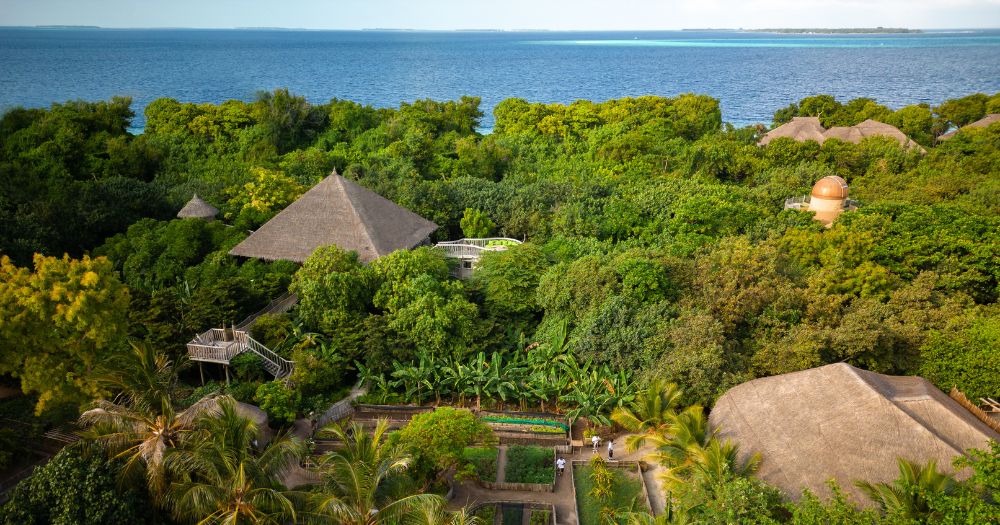
Looking to the future
Dr Leonhardt says the future of the oceans depends on acting for our oceans and natural environment, and we need to do this now.
“My hope is that we restore and then conserve what we have now, and do not let it deplete any further for our children and grandchildren.
“Once a guest experiences a coral reef, they never forget it and want their loved ones to experience such a delight. To have a healthy, beautiful reef, where they can see what a coral reef should look like, would be very impactful on a person.”
“I also hope more Maldivians come to do internships and learn at AquaTerra because this is their home, their country and it’s beautiful. The more we can pass this knowledge and stewardship onto locals, the better the place will be long-term.”
For more information, visit soneva.com.



